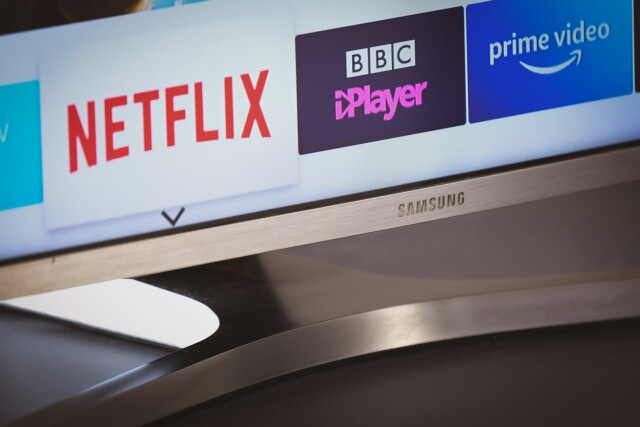On the Future of the BBC

The Cog Blog does not do politics. I also try to avoid parochialism -- specific issues we may be facing here in the U.K. are often of little relevance to other parts of the world. That said, today's post will come close to breaking those two principles, as it's about the BBC.
For the benefit of non-U.K. readers, the BBC is funded by a license fee. If you have a TV that you use to watch any live TV, or indeed any downloaded or streamed BBC programs via its iPlayer service you have to buy a license, currently £159 a year. For that, the BBC delivers a range of TV channels, radio stations and many and various other specific services. There's an overview of what is delivered here.
The license fee has been controversial for a long time. Some see it as an unfair universal tax. Others argue it should only be paid by those using the BBC's services, with those using it more paying more (despite the fact such a move would most likely shift the burden on to those who can least afford it).
Others see it as an outdated funding mechanism in an age of subscription services.
The license fee has been a political issue for decades. In 1985 then-Prime Minister Margaret Thatcher set up the Peacock Committee, chaired by Professor Alan Peacock. It was largely thought at the time that Thatcher hoped and expected that this would conclude that the license fee should be scrapped.
Unfortunately for the Government, Peacock advised that the license fee should remain, although he did suggest that Radios 1 and 2 (the most popular and thus potentially commercial of the corporation's radio stations) should be privatized.
Around the time of the Peacock Enquiry (in 1985) the BBC ran a famous ad featuring John Cleese. It's recently resurfaced online as the issue of the license fee is once again being politicized.
The BBC does deliver an extraordinary range of content as this film promoting its musical output aims to demonstrate.
Research indicates that most people in this country are proud of the BBC; it's known and admired around the world, where the World Service is valued, and (outside of the U.K.) carries ads.
It is often said that politicians see television as something for appearing on as opposed to something to watch. Certainly, the ignorance many of them display over our broadcasting infrastructure is shocking.
For example, our Secretary of State for Culture under recent Parliamentary questioning seemed not to know how Channel 4 is funded. She's also threatened the BBC -- holding the level or even the continuation of the licence fee hostage against any perceived criticism of the Government.
It's worth considering:
- Around 90% of the U.K. population views or listens to BBC output every week.
- Whilst the BBC is criticized on social media for being "too left wing" / "too right wing" (seems they've managed to upset both sides, thus achieving a modicum of balance) the majority of the population likes and admires it.
- Most (recent) criticism of the BBC is around its news division. There's very little criticism of its drama, its documentaries, its nature programmes, its light entertainment or even its sport coverage.
- The level of the license fee compares favourably with a Netflix subscription -- and the output delivered is far more diverse.
- The notion of a subscription, maybe across some selected output, is worth assessment -- although as far as I can make out nobody anywhere runs a multi-channel diverse radio service on subscription.
- The BBC has an impressive and skilled audience measurement unit. It appears that politicians and critics are either unaware of this (a well-known BBC broadcaster said on national radio last week that "nobody knows who consumes the BBC") or just ignore it.
I am an unapologetic fan of the very idea of the BBC, but of course times change when it comes to how it's run and funded.
This is not a matter for political game-playing but for a national discussion and debate using both consumer data and expert opinion from all sides.
As a cynical old git of an adman I am reminded of the 1980's arguments around the agency commission system. The point was made that the commission system was a hopeless model until you considered the alternatives.
For example, charging a client a fee based on hours would mean that an agency coming up with what turned into a massive long-running campaign would be paid peanuts for the original idea ... whereas under the commission system they would be paid whenever the idea was used.
The license fee is no doubt flawed and should be rigorously examined along with other options. The impact such options might have on the wider broadcasting landscape needs to be considered.
Way back in the dark ages the IPA's Media Policy Group set up a sub-committee to explore whether or not the agency business should be arguing for ads on the BBC. (I was on that committee.)
We decided against, not least because we felt that given the audience (size and nature) delivered by the BBC, advertisers would flock to it, causing irreparable harm to other commercially funded broadcasters which we felt would not be in advertisers' interests.
The U.K. system, BBC et al. is balanced. The balance may have become tilted one way or the other, but we should think very carefully about abandoning it altogether.
Baby and bathwater, people, baby and bathwater.
Click the social buttons to share this content with your friends and colleagues.
The opinions and points of view expressed in this content are exclusively the views of the author and/or subject(s) and do not necessarily represent the views of MediaVillage.com/MyersBizNet, Inc. management or associated writers.


